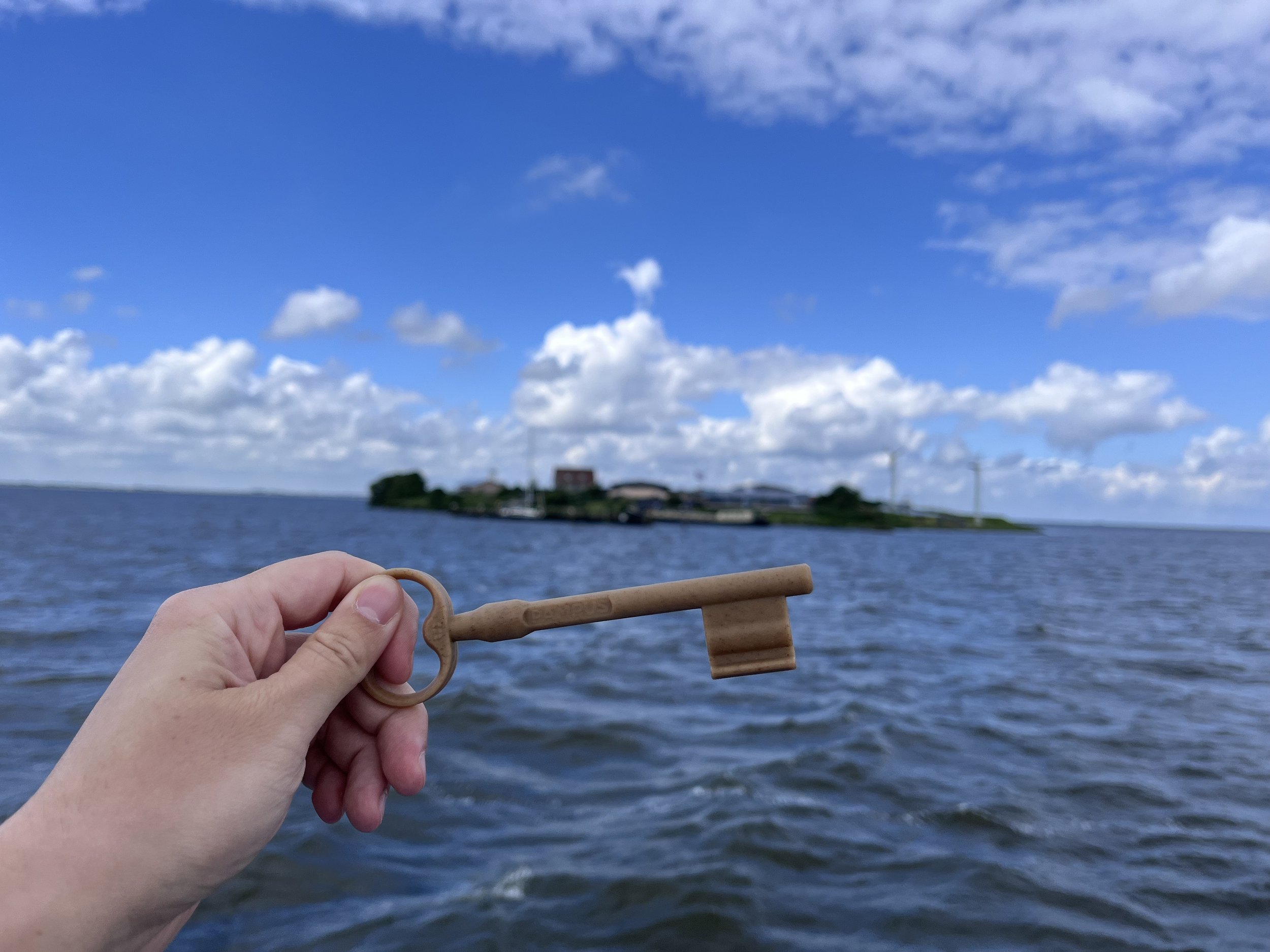Pampus Impacteiland
Pampus Impacteiland is a UNESCO World Heritage site uniquely situated on an island in Lake IJssel off the coast of Amsterdam, the Netherlands.
Pampus is the first UNESCO World Heritage Site to become 100% fossil-free in the Netherlands. The island has applied a brand-new renewable energy system consisting of power generation through wind, solar, and biodigestion and a combination of green hydrogen, lithium batteries, thermal storage, and heat pumps to provide energy storage. By deploying this energy system, the island can meet its own energy needs year-round.
On the 29th May 2024, we were thrilled to join the official opening of 'Fossil-Free Pampus' - celebrating Pampus Impacteiland's new era of sustainability and self-sufficiency. Opened by Wolf, an 8-year old boy who loves nature, Rob Jetten, the Dutch demissionary Minister of Climate and Energy, and Tom van Nouhuys, Director of Pampus, by activating the island's new wind turbine.
In order to become truly sustainable and truly circular, Pampus and Solinatra joined forces to create the innovative 'Pampus Key'. The key serves as more than just a symbolic entrance key to the fort at Pampus; it also unlocks various games on the island, offering visitors a fun and engaging way to learn about the history of Pampus.
The biodegradable key can be easily disposed of in the island's own anaerobic digestor, aligning perfectly with both companies’ commitment to sustainability and circularity. With Solinatra materials that are 100% natural and plant-based, compostable, and biodegradable, this initiative showcases how sustainable practices can enhance visitor experiences while preserving historical sites for future generations.
Solinatra biodegradable materials ensure that the key can be disposed of in an anaerobic digestor, further emphasising its sustainable nature. Anaerobic digestion has numerous environmental benefits for disposing of the ‘Pampus Key’. This process not only prevents the release of harmful greenhouse gases into the atmosphere but also produces biogas that can be used as a renewable energy source.
The use of the on-site anaerobic digester enables the island to compost all of its organic waste, including any food waste and plant waste, reducing its carbon footprint and removing the need for waste to be sent to the mainland for processing.
By choosing compostable materials Pampus is able to become self-sufficient and promotes sustainability and circularity in their practices, ensuring that their waste contributes positively to the environment.
The collaboration between Pampus and Solinatra has created a truly sustainable solution for visitors to enjoy while exploring the historic island.
Discover More






